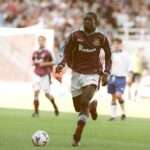Training takes substantial time and energy. It’s a grind to get through daily training, but most boxers know that the hours leading up to a fight seem to pass much slower than the previous months of training. Fight day arrives; weigh-ins and physicals fly by, but you usually have to wait hours to fight. This guide gives some pointers to help you overcome your idle time on the day of your boxing match.
Rest Up
Many fighters underestimate the benefit of a quick nap. If you can take a long nap, then certainly don’t hold back. If you only have an hour or two, though, don’t count out the possibility of a half-hour rest. A nap will rejuvenate your mind and body. In addition, resting will calm your nerves and give you some peace of mind.
Each person differs when it comes to recovery after a nap, though. Some people wake-up and have all the energy in the world, while others take some time to recoup. Give yourself adequate time to wake up and focus prior to your fight.
Play Some Tunes
Music is a common link among all cultures, and technological advances have made it easier than ever to listen to your favorite tunes. Bring your mp3 device or music player to your fight, and listen to your favorite songs while you wait.
Music can have a calming effect, or energize you immediately before you step in the right. Many boxers make the mistake of listening to “pump-up” music much too early, though. They get excited and anxious, but are drained by the time the fight-time rolls around. Listen to calming music until you’re within an hour of your fight, then let the pump-up tunes out of the cage!
Hot Tip: Refueled
Make sure you’re eating and drinking as you wait for your bout, especially if you’ve undergone a strict diet leading up to your bout. Fuel your body with carbohydrates and a sports drink.
Homework & Reading
The National Collegiate Boxing Association (NCBA) is the governing body of collegiate boxing. The NCBA encourages student-athletes to work hard in the ring and in the classroom. Idle time can turn into homework time whether you’re a collegiate fighter, or an amateur boxer who’s still in school. Homework requires concentration, and the focus you apply to your schoolwork can temporarily relieve your nerves and anxiety. In addition, finished homework gives you more free time once your bout comes to a close.
Pull out a book, newspaper article, or magazine even if you’re not in school. Reading is one of the best ways to pass time.
Watch Other Bouts
Take a peek at other bouts while you wait on your own match. As you watch, remind yourself that each competitor has flaws and can be beaten. Analyze each of the competitors and try to expand your boxing knowledge. Identify not only strengths, but their weaknesses as well. In addition, you may also be able to pick up some of the nuances of the competition ring. Ring sizes differ slightly among venues, so be sure to use the ring size to your advantage.
Warm-up Drills
Your trainer will wrap your hands once the match is nearing. It’s important for you to develop a pre-bout custom; most boxers like to jump rope and shadow box for a few rounds to warm up. Stretching may precede or follow your initial warm-up.
Lastly, after the judges give you your competition gloves, practice some simple combos on the focus-mitts. Become comfortable with the competition gloves, which will inevitably weigh less than your training gloves. As you walk to the ring, remind yourself of the fundamentals: Use your jab and keep your hands up!
“When I come out [of the dressing room], I have supreme confidence, but I’m scared to death. I’m totally afraid. I’m afraid of losing. I’m afraid of being humiliated, but the closer I get to the ring, the more confident I get.”
Mike Tyson, Former Heavyweight Champ
Focus
Don’t over-think in the days and hours leading up to your bout. You’ve already trained hard to maximize your chances of success. Over-thinking merely drains you of energy you could otherwise use in the ring. Stays focused, but try to highlight the most fundamental skills first and foremost. For example, always remember your head movement and combination punching.



